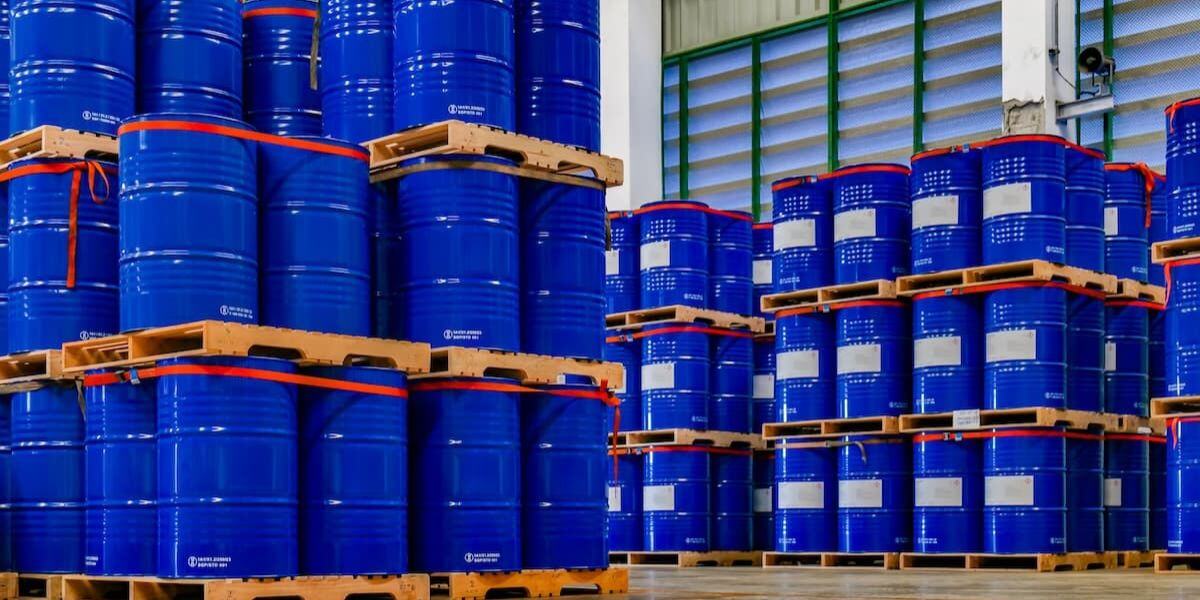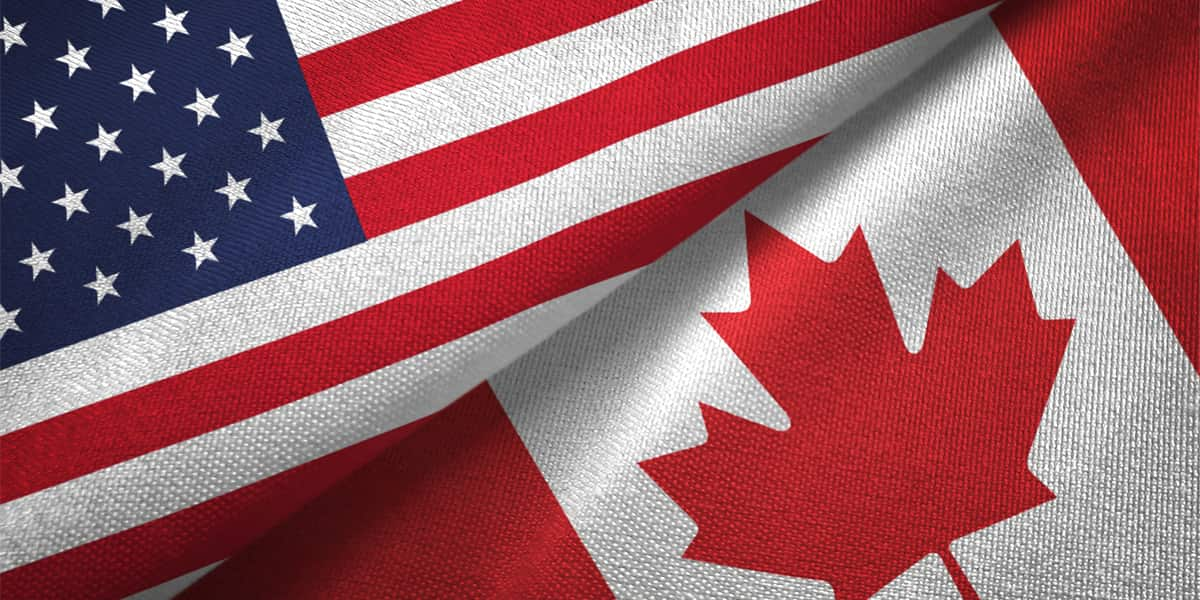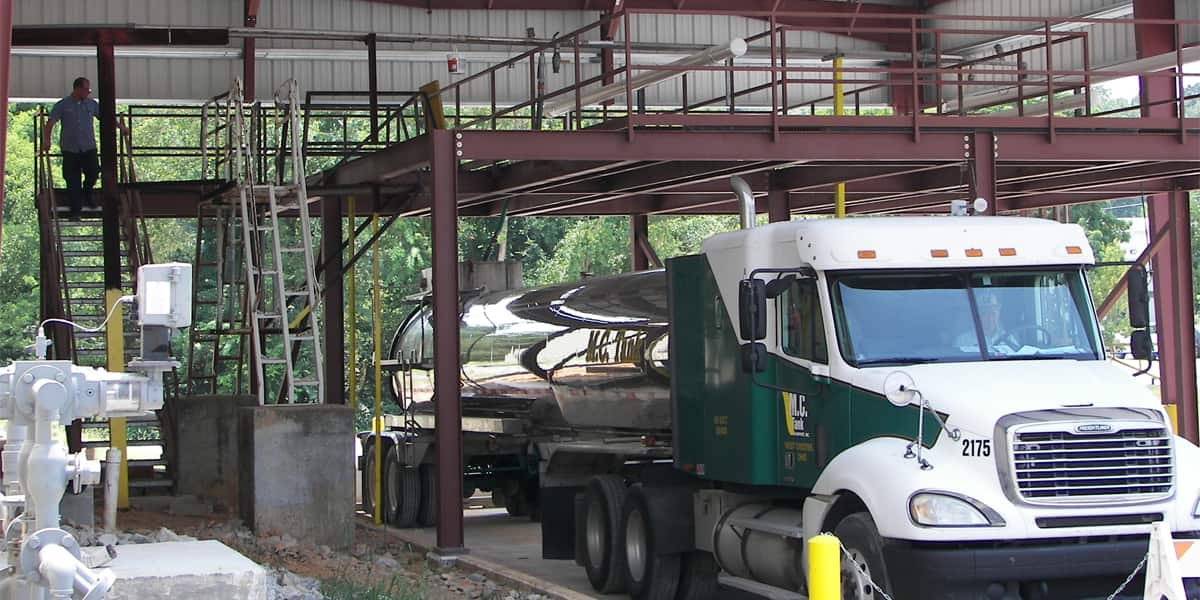
Guide to Chemical Contract Manufacturing: Everything You Need to Know About Toll Blending, Packaging, Warehousing, and Transportation of Chemical Products
Outsourcing chemical manufacturing can solve many of the challenges businesses face when managing production in-house. From high operational costs and stringent quality requirements to navigating complex regulatory landscapes, handling chemical manufacturing internally can be overwhelming. By partnering with a specialized contract manufacturer, you gain access to state-of-the-art facilities, experienced professionals, and the ability to scale production efficiently—all while freeing up valuable resources to focus on innovation, market expansion, and customer satisfaction. This guide will explore how chemical contract manufacturing can address these challenges and drive growth for your business.
What is Chemical Toll Blending?
Chemical blending involves combining raw materials to create a finished product based on precise formulations provided by clients. Toll blending, a subset of contract manufacturing, refers to outsourcing this process to experts with specialized equipment and expertise.
Advantages of Toll Blending:
- Cost Savings: Eliminate the need for expensive equipment and operational overhead.
- Expertise Access: Partnering with experienced manufacturers ensures consistent quality.
- Focus on Growth: Redirect internal resources to product innovation and marketing instead of managing production logistics.
Toll blending not only provides these advantages but also opens the door to a range of specialized services designed to support every stage of your product’s journey, from formulation to final delivery. Let’s explore the key services offered in chemical contract manufacturing and how they can streamline your operations.
Key Services in Chemical Contract Manufacturing
1. Custom Liquid and Powder Blending
Blending is at the heart of chemical manufacturing, and advanced equipment plays a crucial role in ensuring precision and consistency. Liquid mixers, with capacities up to 6,000 gallons, and powder blenders, capable of handling batches up to 7,000 pounds, are designed to accommodate the unique demands of industries such as cleaning products, agrochemicals, and water treatment solutions.
For example, spray bars integrated into powder blending systems allow for the precise addition of liquids during mixing, ensuring uniformity in even the most complex formulations. This level of customization benefits businesses that require consistency across large-scale production runs, reducing variability that could impact performance or customer satisfaction.
Additionally, these capabilities are highly adaptable to a wide range of chemical compositions, from highly viscous liquids to fine powders, ensuring that clients can rely on a single partner for their blending needs. For product or project managers, this minimizes oversight requirements and supports quicker time-to-market.
2. Chemical Packaging
Packaging is far more than just a container; it plays a critical role in protecting chemical products during transportation and ensuring usability for the end customer. Packaging needs vary widely depending on the product, industry, and application, and options can range from small 8-ounce bottles to bulk solutions like totes, drums, or even tanker trucks.
The choice of material—plastic, metal, or glass—adds another layer of customization. Plastic is lightweight and cost-effective, making it ideal for non-corrosive products, while metal packaging is suited for flammable or reactive chemicals. Glass offers sustainability and chemical inertness, although it may require additional care in handling.
Custom packaging not only ensures compliance with safety and environmental regulations but also helps businesses align with their branding or customer usability goals. For example, businesses in the cleaning products sector might require small consumer-friendly containers, while agrochemical companies may prioritize bulk solutions to simplify storage and application in the field. This flexibility reduces logistical complexities, allowing buyers or purchasing managers to tailor packaging to their supply chain needs without incurring additional costs.
3. Chemical Warehousing
Effective warehousing is critical to managing inventory, reducing costs, and ensuring reliable supply chains. With 570,000 square feet of strategically located warehousing space, Royal Chemical can store finished products close to key distribution hubs.
This is particularly valuable for industries that deal with fluctuating demand, such as agrochemicals during planting season. By leveraging warehousing services, companies can maintain buffer stock without needing to invest in additional storage facilities or staff.
This eliminates the burden of managing large inventories in-house, freeing up resources to focus on innovation and sales. Additionally, modern inventory management systems provide real-time tracking and stock visibility, ensuring businesses can meet tight delivery timelines and avoid costly delays.
4. Chemical Transportation
Efficient transportation is essential to ensuring that products arrive at their destination safely, on time, and in compliance with regulatory requirements. Whether transporting bulk chemical solutions in tanker trucks or smaller quantities in dry vans, chemical transportation must address the unique challenges posed by hazardous materials, temperature-sensitive products, or complex logistics.
Partnerships with trusted logistics providers ensure streamlined shipping, reducing the risk of delays or damage during transit. Companies operating in industries like agrochemicals benefit from the ability to ship bulk quantities quickly, while those in the cleaning products sector may rely on timely delivery of smaller shipments to maintain steady supply chains.
Outsourcing transportation simplifies operations by reducing the need to manage carrier relationships and compliance independently. Contract manufacturers, such as Royal Chemical, often have established relationships with trusted third-party logistics providers (3PLs) to handle shipping needs efficiently. Leveraging these partnerships, businesses can minimize downtime, streamline logistics, and better meet customer expectations for reliable and timely delivery.
Benefits of Partnering with a Chemical Contract Manufacturer
Enhanced Efficiency
Managing chemical production in-house requires significant resources, from staffing and equipment to supply chain logistics. Outsourcing to a chemical contract manufacturer streamlines this process by consolidating blending, packaging, warehousing, and transportation under one roof. This integrated approach not only minimizes operational bottlenecks but also reduces lead times, ensuring products reach your customers faster. Additionally, streamlined production helps cut unnecessary costs, allowing your business to allocate resources more effectively.
Scalability
Scaling production to meet increasing demand can be challenging, particularly if your existing infrastructure isn’t equipped to handle large-scale operations. Chemical contract manufacturers offer the flexibility to scale up or down as your business needs evolve. Whether you’re launching a new product, entering a new market, or experiencing seasonal demand fluctuations, their capacity to adapt ensures your production remains seamless without the need for costly investments in additional facilities or staff.
Confidentiality
In industries where proprietary formulations and trade secrets are key to maintaining a competitive edge, protecting intellectual property is key. A reliable chemical manufacturing partner will have rigorous confidentiality protocols in place to safeguard your formulations throughout the production process. This assurance allows businesses to outsource with confidence, knowing their intellectual property is secure and won’t be shared or leveraged elsewhere.
Regulatory Compliance
The regulatory landscape for chemical production can be complex, with strict guidelines around safety, labeling, handling, and environmental impact. Contract manufacturers bring in-depth knowledge of these regulations, ensuring your products meet all necessary standards. From preparing safety data sheets (SDS) to adhering to EPA, OSHA, and industry-specific certifications, their expertise minimizes compliance risks, giving you peace of mind and allowing you to focus on core business activities.
The Onboarding Process: What to Expect
At Royal Chemical, onboarding begins with a Technology Transfer Package (TTP), a detailed roadmap covering:
- Quality and consistency standards
- Packaging and shipping logistics
- IP protection and invoicing
This structured approach ensures seamless integration into your supply chain and minimizes disruptions.
Why Choose Royal Chemical?
With over 80 years of experience, five strategic locations, and a commitment to confidentiality and quality, Royal Chemical is your partner in growth. Contact us today to discuss how we can meet your chemical blending and manufacturing needs.
Talk to an Expert
Streamline Your Chemical Manufacturing Process
Royal Chemical’s expertise in blending, packaging and shipping can save you time, reduce costs and deliver consistent results.














